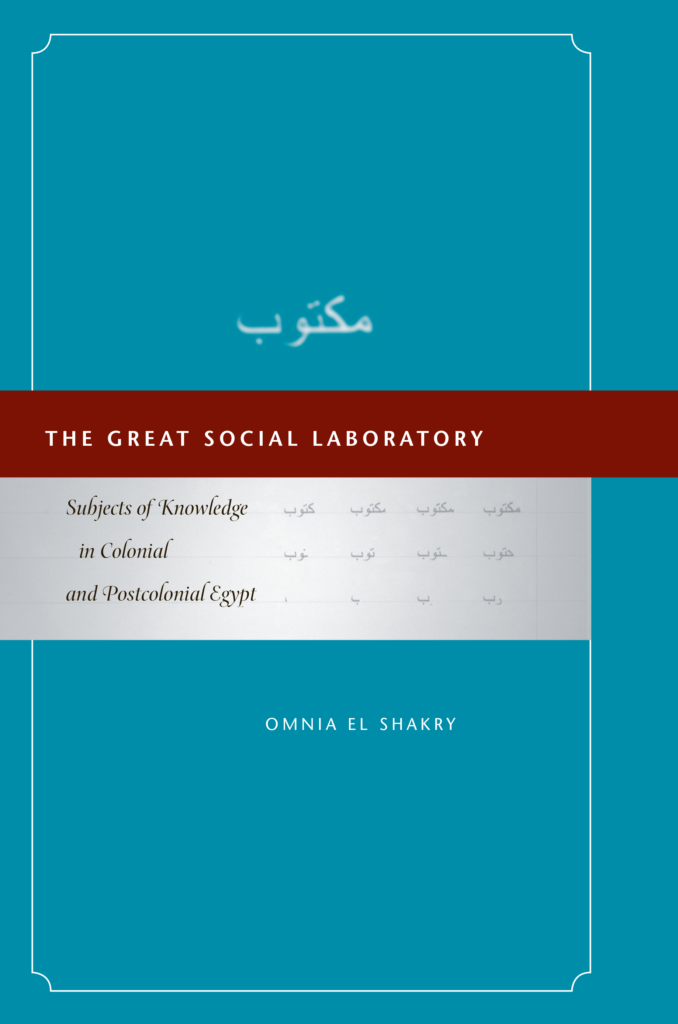An exploration of the interface between European and Egyptian social scientific discourses, and of the boundaries of knowledge production in a colonial and post-colonial setting.

The Great Social Laboratory: Subjects of Knowledge in Colonial and Postcolonial Egypt United States, Stanford University Press, 2007.
The Great Social Laboratory charts the development of the human sciences—anthropology, human geography, and demography—in late nineteenth- and twentieth-century Egypt. Tracing both intellectual and institutional genealogies of knowledge production, this book examines social science through a broad range of texts and cultural artifacts, ranging from the ethnographic museum to architectural designs to that pinnacle of social scientific research—”the article.”
Omnia El Shakry explores the interface between European and Egyptian social scientific discourses and interrogates the boundaries of knowledge production in a colonial and post-colonial setting. She examines the complex imperatives of race, class, and gender in the Egyptian colonial context, uncovering the new modes of governance, expertise, and social knowledge that defined a distinctive era of nationalist politics in the inter- and post-war periods. Finally, she examines the discursive field mapped out by colonial and nationalist discourses on the racial identity of the modern Egyptians.